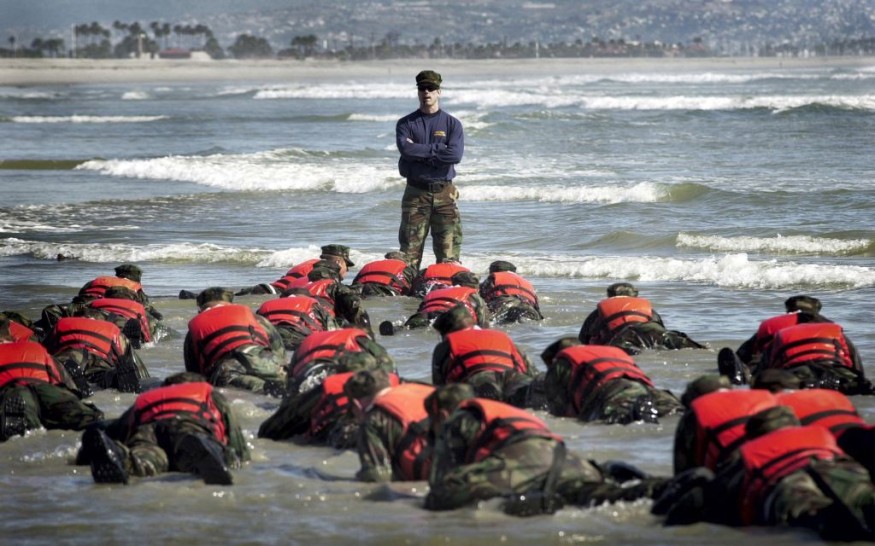US Navy Seal Brutal 'Hell Week' Training Plagued by Masive Problems in Medical Care, Probe Shows

The death of a sailor last year has sparked an investigation into the Navy SEAL training program known as Hell Week.
The NavyTimes reported that the probe revealed a series of disturbing findings that uncovered various issues, including medical care failures, inadequate oversight, and the use of performance-enhancing drugs that significantly heightened the risks faced by aspiring elite commandos.
The Naval Education and Training Command recently published a comprehensive 200-page assessment that shed light on the program's shortcomings.
The report highlighted flaws in the medical program, which "likely had the most direct impact on the health and well being" of the SEAL candidates and "specifically" on the case of Kyle Mullen, the sailor who died.
According to the probe, Mullen's death could have been preventable if only the shortcomings had been addressed. In addition to medical care flaws, the investigation also delved into the issue of steroids and similar banned drugs use among sailors striving to pass the SEAL qualifying training.
The report recommends increased testing for these drugs and improved education for service members to discourage them from using these substances. However, the Navy and the military have been slow in implementing these measures.
READ NEXT : US Navy Bribery Scandal
Death of Navy Seal Candidate Kyle Mullen
Kyle Mullen, a Navy SEAL candidate, reached a crucial stage in his training in February 2022. Having completed the grueling Hell Week, he underwent a final checkup before returning to his barracks for the night, CNN reported.
However, the investigation into Mullen's tragic death revealed that he suffered respiratory issues during the strenuous training. However, information about the symptoms was not passed on to the medical clinic, which led them to conclude the sailor was not at risk.
Sadly, eight hours after his final checkup, Mullen was pronounced dead. The probe showed that Mullen struggled with breathing and coughed up an "orange-red fluid" in the hours preceding his death.
Even as Mullen repeatedly refused advanced medical care, he appeared to be gasping for air like he was drowning and choking on his words. But the watch standers or the personnel assigned to check on him and other candidates had no medical or emergency care training.
Bicillin, a form of penicillin, is usually administered to SEAL candidates at the start of the training program to mitigate the risk of bacterial pneumonia during Hell Week. However, the investigation revealed that Mullen did not receive the said medicine, possibly due to a shortage at the time.
10 People Could Be Punished Following Death of Kyle Mullen
Following the tragic death of Kyle Mullen during the Navy SEALS training, the investigation has resulted in the identification of 10 individuals, including two high-ranking Navy SEALs, who are likely to face prosecution, CBS News reported.
Along with three other members of his training class, Mullen, the 24-year-old Navy SEAL candidate, was hospitalized after experiencing "failures across multiple systems," as stated by a Navy official.
The redacted version of the investigation report was released on Thursday, shedding light on the case. Captain Brad Geary, the training commander, attributed the notably high dropout rate to the current generation's perceived lack of mental toughness.
However, the investigation report identified the increase in training intensity as the primary factor in the unusually high dropout rate.
Geary and his immediate superior, Capt. Brian Drechsler, who was then the commander of the Naval Special Warfare Center in Coronado, California, were both cited in the report for their lack of oversight, along with a senior medical officer in the program. The three men have since left their respective positions.
READ MORE : Uvalde Shooting
This article is owned by Latin Post.
Written by: Bert Hoover
WATCH: Navy SEAL BUD/S Training: 'Hell Week' Explained - From CBS 8 San Diego
Subscribe to Latin Post!
Sign up for our free newsletter for the Latest coverage!
© 2026 Latin Post. All rights reserved. Do not reproduce without permission.















